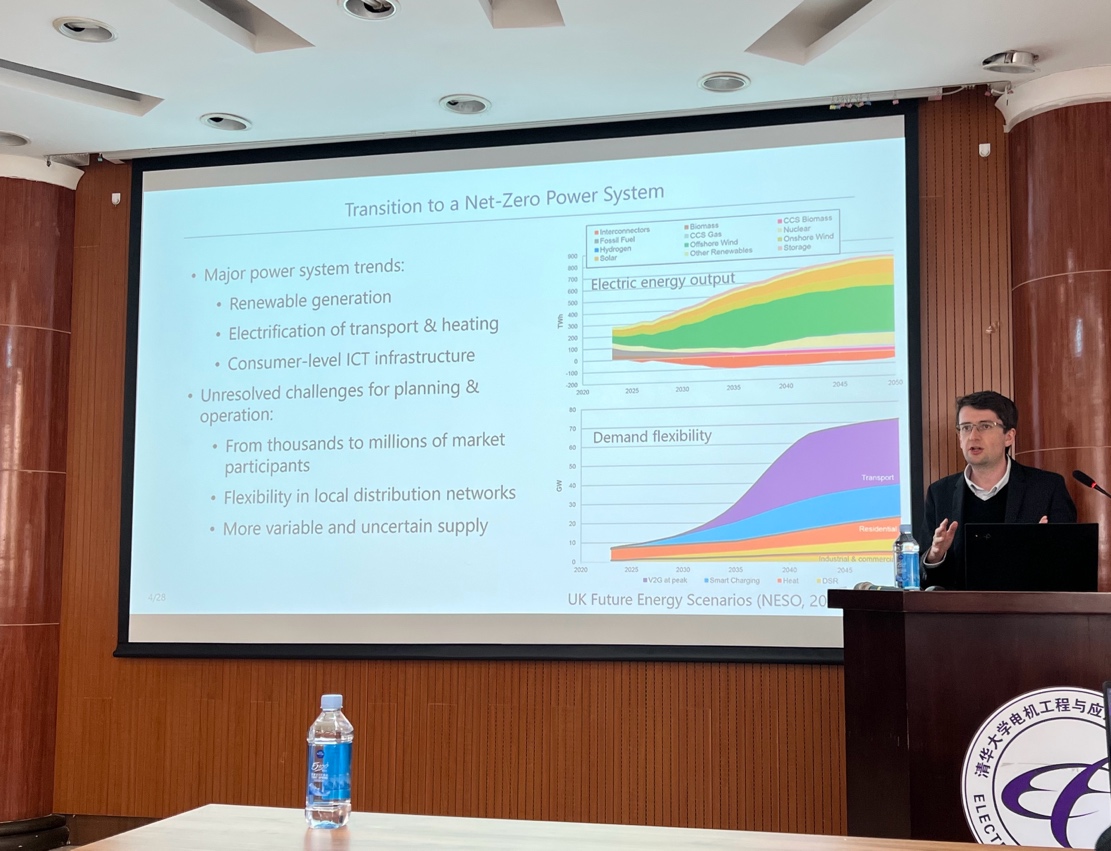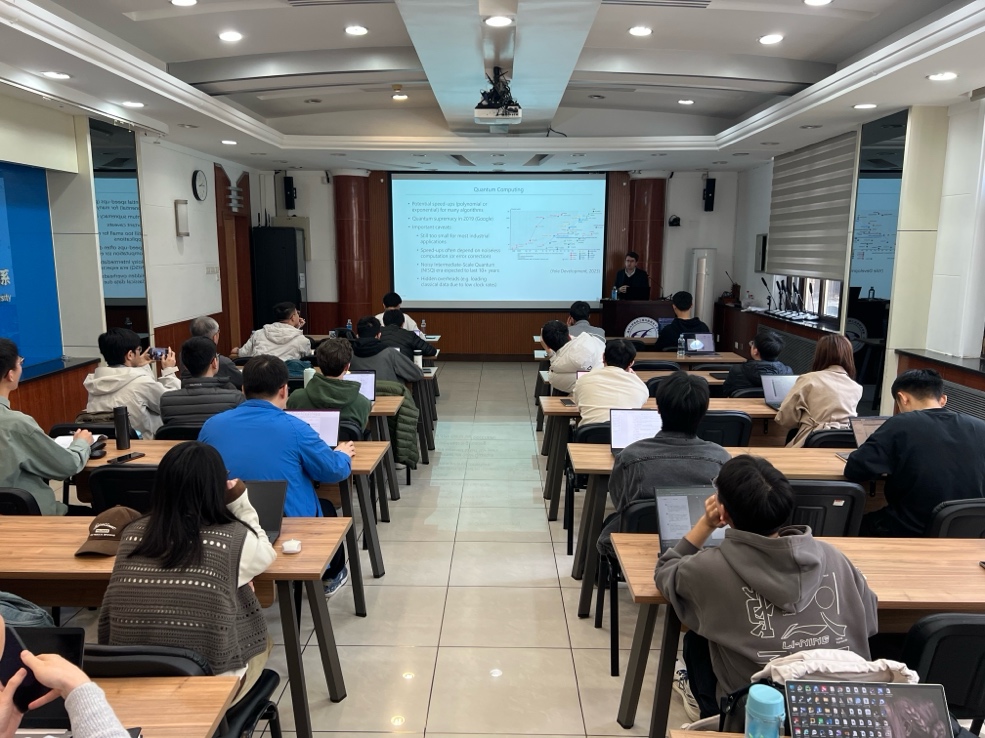On April 2, Dr. Thomas Morstyn, Associate Professor at the University of Oxford, was invited to deliver a specialized academic lecture at the Department of Electrical Engineering and Applied Electronics (EEA), Tsinghua University. His presentation, titled "Opportunities for Quantum Computing in Net-Zero Power System Optimization," was hosted by Dr. Guo Hongye, Associate Researcher at the department. Associate Professor Liu Feng and Associate Researcher Du Ershun from the Low-Carbon Energy Laboratory also attended the event. In addition to faculty and students from EEA, the lecture drew attendees from the School of Environment at Tsinghua, South China University of Technology, Imperial College London, and the University of Hong Kong.
In his lecture, Dr. Morstyn delved into the opportunities and challenges associated with applying quantum computing to the optimization of net-zero power systems. He emphasized that traditional power system optimization problems are increasingly pushing the limits of supercomputing capabilities. In contrast, quantum computing, with its novel architecture and unique computational potential, offers promising new approaches for tackling such complex issues. He provided a detailed overview of the possible applications of quantum computing in combinatorial optimization, convex optimization, and machine learning-based optimization problems, highlighting its advantages in complex scheduling, resource allocation, and intelligent optimization tasks.
At the same time, Dr. Morstyn acknowledged several practical challenges in applying quantum computing, including issues of technological maturity, integration with existing systems, and scalability. Specific concerns he noted included qubit stability, error rates, interface design, and data transmission. He also outlined future research directions, such as developing quantum-optimized algorithms, improving hardware performance, enhancing interdisciplinary collaboration, and establishing technical standards for the field.

Thomas Morstyn delivering his academic lecture

At the lecture
Following the lecture, doctoral students from Tsinghua University, Imperial College London, and the University of Hong Kong engaged in a lively discussion with Dr. Morstyn on the topic of quantum applications. He also took time after the session to hear presentations from four Tsinghua PhD students on their research in distributed resource aggregation, power market behavior analysis, bidding strategy in power markets, and power system planning.
This event was part of the 2024 academic activity series hosted by the Tsinghua-Imperial Joint Research Centre for Intelligent Power and Energy Systems.
Speaker Bio:
Dr. Thomas Morstyn is an Associate Professor in Power Systems at the Department of Engineering Science, University of Oxford, where he leads the Power Systems Architecture Laboratory. He is also a Fellow of Hertford College, an Honorary Research Fellow at the University of Edinburgh, Associate Editor of IEEE Transactions on Power Systems, and Co-Chair of the IEEE PES Task Force on Power System Operations and Control with Quantum Computing. His research focuses on power system digitalization and market mechanism design—two interrelated drivers crucial to the net-zero energy transition.

















 News & Events
News & Events